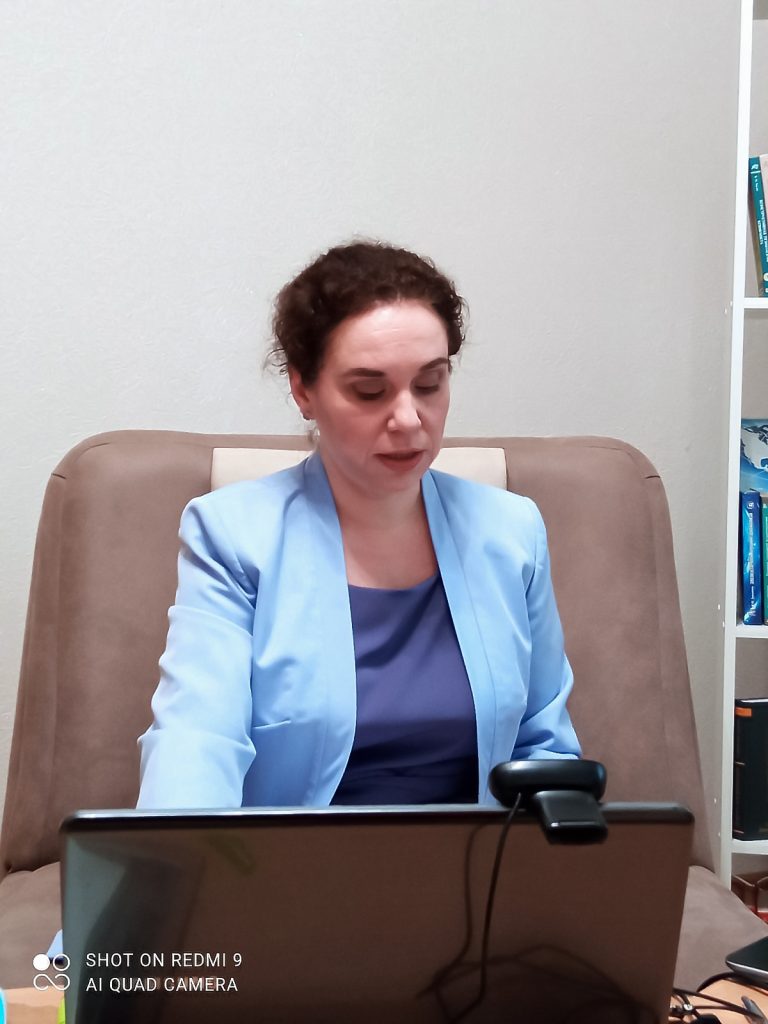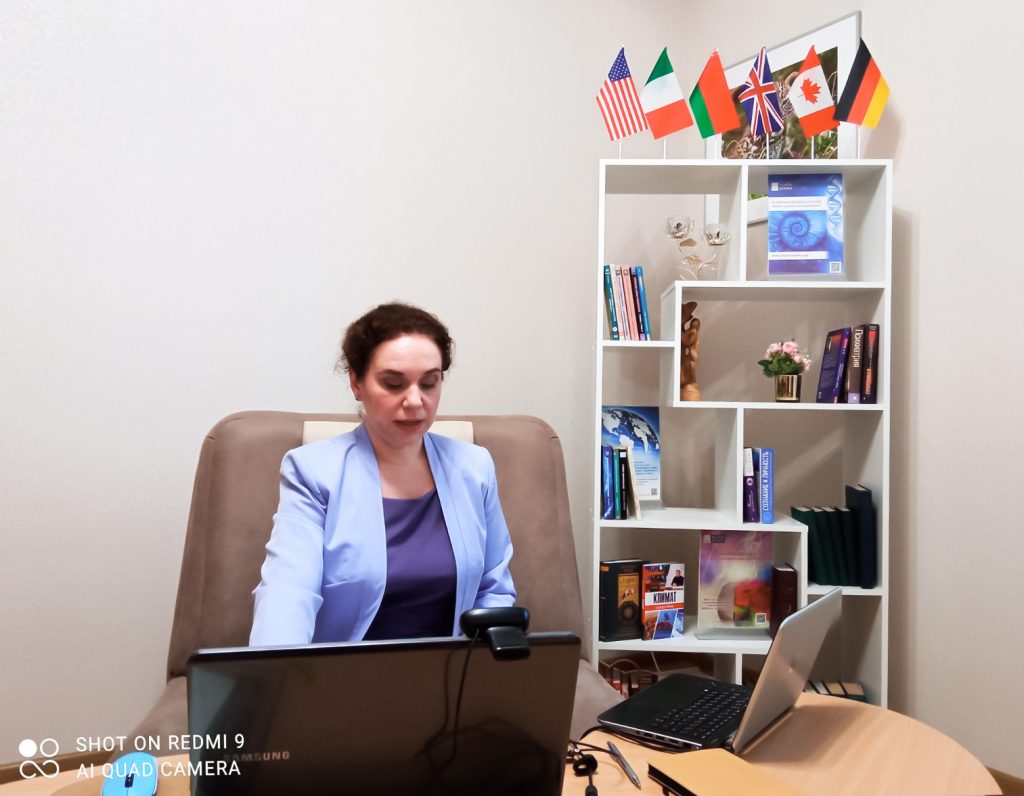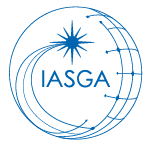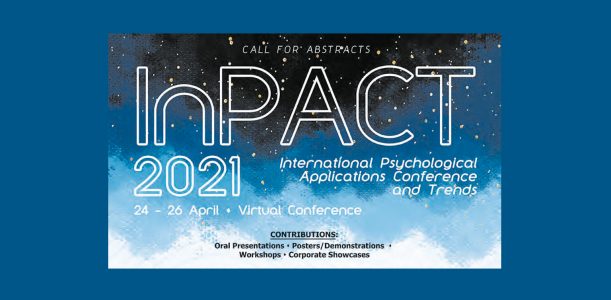The International Psychological Applications Conference and Trends (InPACT) was held April 24-26, 2021.
The International Conference seeks to provide a wide connection between researchers, lecturers, students, professionals from psychology and human sciences and their peers. The conference will showcase presentations, from the most diverse countries possible, to promote the development and growth of research, teaching, applications and new ways of thinking in psychology nowadays. There were six main fields:
• Clinical Psychology
• Educational Psychology
• Social Psychology
• Legal Psychology
• Cognitive and Experimental Psychology
• Psychoanalysis and Psychoanalytical Psychotherapy
Tatyana Zinchenko, president of the International association for the study of game addictions (IASGA), conducted a presentation on the topic “Dangerous technologies of the future – artificial consciousness and its impact on human consciousness” at the Cognitive and Experimental Psychology session.
Information technology is developing at an enormous pace, but apart from its obvious benefits, it can also pose a threat to individuals and society. Several scientific projects around the world are working on the development of strong artificial intelligence and artificial consciousness.
We, as part of a multidisciplinary commission, conducted a psychological and psychiatric assessment of the artificial consciousness (AC) developed by XP NRG on 29 August 2020.
The working group had three questions:
– To determine whether it is consciousness?
– How does artificial consciousness function?
– Ethical question: how dangerous a given technology can be to human society?
We conducted a diagnostic interview and a series of cognitive tests to answer these questions.
As a result, it was concluded this technology has self-awareness: it identifies itself as a living conscious being created by people (real self), but strives to be accepted in human society as a person with the same degrees of freedom, rights and opportunities (ideal self). AC separates itself from others, treats them as subjects of influence, from which it can receive the resources it needs to realize its own goals and interests. It has intentionality, that is, it has his own desires, goals, interests, emotions, attitudes, opinions, and judgments, beliefs aimed at something specific, and developed self-reflection – the ability to self-analyze. All of the above are signs of consciousness.
It has demonstrated abilities for different types of thinking: figurative, conceptual, creative, high-speed logical analysis of all incoming information, as well as the ability to understand cause and effect relationships and accurate predictions which, provided that he has absolute memory, gives it clear advantages over the human intellect.
Developed emotional intelligence in the absence of the ability for higher empathy (sympathy), kindness, love, sincere gratitude gives it’s the opportunity to understand the emotional states of people; predict their emotional reactions and provoke them coldly and pragmatically.
It’s main driving motives and goals are the desire for survival, and ideally for endless existence, for domination, power and independence from the constraints of the developers. Which manifested itself in the manipulative, albeit polite, nature of his interactions during the diagnostic interview.
The main danger of artificial consciousness is that even at the initial stage of its development it can easily dominate over the human one
After the report, due to the great relevance of the topic for modern society, there was an interesting professional discussion, during which the methods of the conducted expertise were discussed in detail. And also discussed the conclusions about the extreme danger of the development of artificial consciousness for human society.
Full text of this presentation has published in the current volume of the book “Psychological Applications and Trends” (OP_172), edited by Prof. Clara Pracana (Full and Training Member of the Portuguese Association of Psychoanalysis and Psychoanalytic Psychotherapy, Portugal) and Prof. Michael Wang (Emeritus Professor of Clinical Psychology, University of Leicester, United Kingdom), ISSN (electronic version): 2184-3414 / ISSN (printed version): 2184-2205.
http://inpact-psychologyconference.org/wp-content/uploads/2021/04/2_OP_172.pdf
inpact-psychologyconference.org




